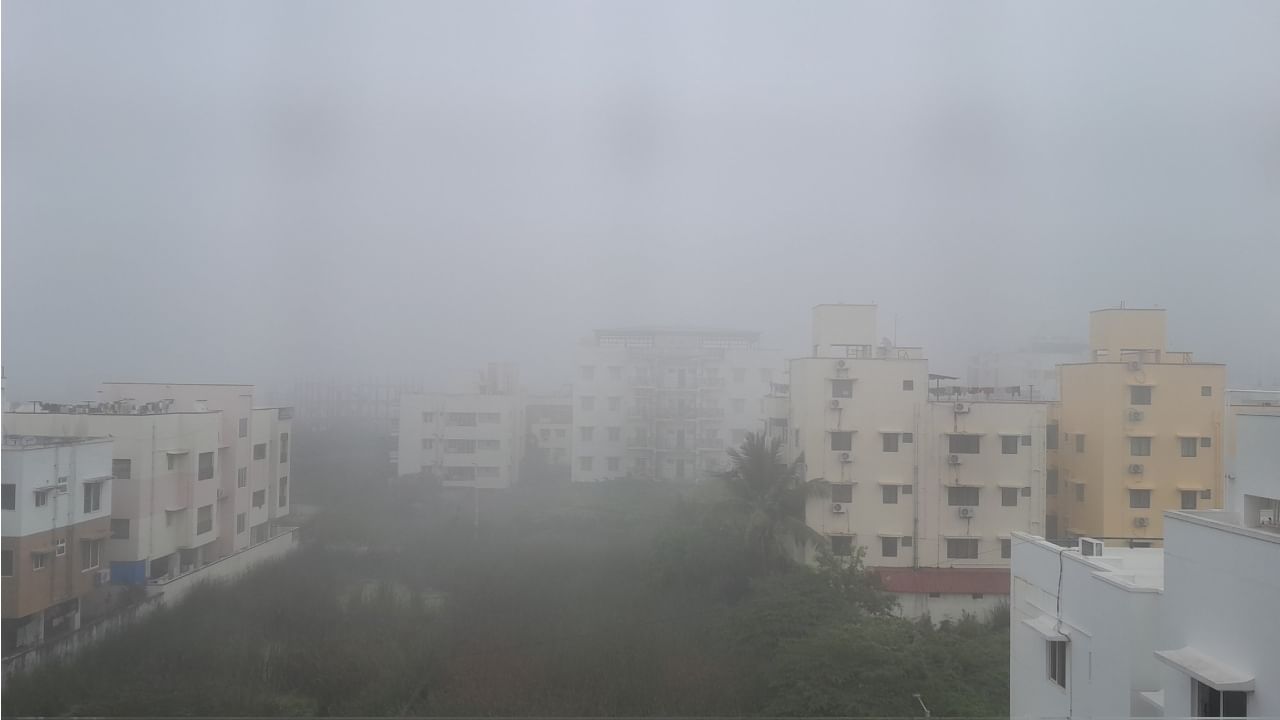Chennai: A day after Diwali celebrations, Chennai has woken up to a severe public health emergency as air pollution levels skyrocketed, crossing the 400 mark on the Air Quality Index (AQI), a threshold categorized as ‘Severe.’ The city’s air quality has plummeted to a crisis point, drawing alarming parallels to the perennial pollution woes of the national capital, Delhi.
The hazardous haze is not confined to the capital city alone; several interior districts including Vellore, Coimbatore, Trichy, and Tiruppur have also reported a significant spike in pollution levels. The severity of the smog was starkly highlighted when an Indigo passenger flight from Chennai to Trichy was forced to divert and land at Madurai airport, with air pollution cited as a contributing factor to the disruption.
#WATCH | Tamil Nadu: Koyambedu area in Chennai witnesses a thin layer of haze in the air this evening. pic.twitter.com/qhjYx8uWVt
— ANI (@ANI) October 20, 2025
Chennai AQI Crosses 400: Understanding the Severe Health Risks
The Air Quality Index, which peaked at a level perilously close to the maximum hazardous limit of 500, presents a grave health risk to the entire population. An AQI reading between 401 and 500 is classified as ‘Severe,’ signifying that the air poses serious health risks to everyone, not just vulnerable groups.
Health experts warn that at this level, the entire population is advised to avoid all outdoor physical activity. Prolonged exposure can lead to respiratory illnesses and cardiovascular problems, with individuals suffering from pre-existing conditions like asthma and heart disease facing potentially serious health consequences. The ‘Severe’ category acts as an emergency alert, urging citizens to remain indoors as much as possible to minimize health impacts.
Despite Time Restrictions, Widespread Cracker Bursting Fuels Pollution Crisis
The dramatic deterioration in air quality comes despite regulatory measures put in place by the Tamil Nadu government. Following a Supreme Court directive, the state had enforced a two-hour window for bursting fireworks, specifically between 6:00 AM to 7:00 AM and 7:00 PM to 8:00 PM on Diwali day.
However, on the ground, these restrictions were largely flouted. Reports indicate that firecrackers were burst indiscriminately, both before and after the permitted time slots across many neighbourhoods in the city. This widespread violation is identified as the primary driver behind the dangerous spike in pollutants, including particulate matter (PM2.5 and PM10), which have choked the city and transformed the post-festival atmosphere into a toxic public health hazard.
